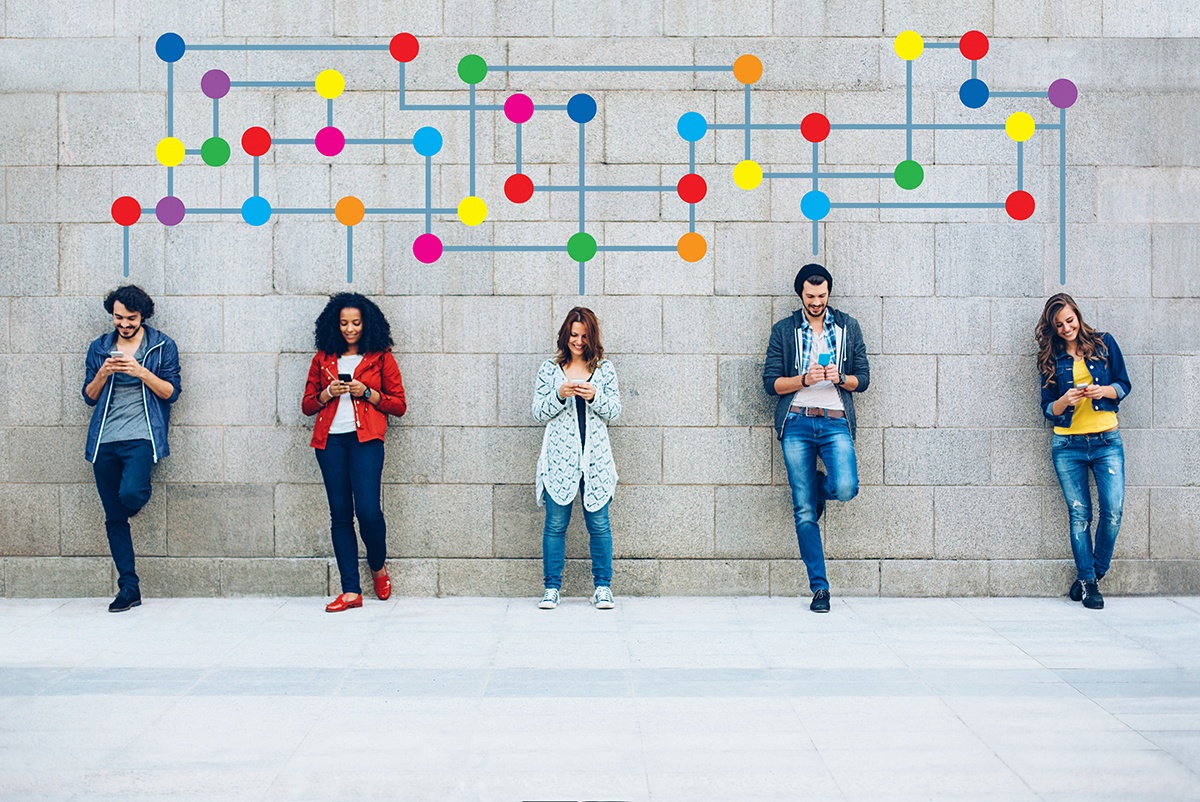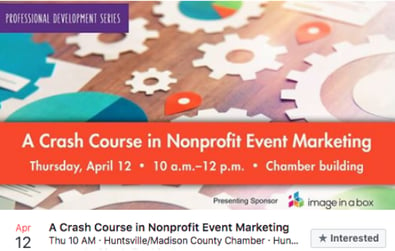How to Use Facebook Events to Increase Your Event Attendance

Contents
One of the best ways to promote your events on social media is through Facebook Events. Why? Because you are able to directly reach people through a social media medium that they already use frequently. 700 million people use Facebook Events each month to market their events and 35 million people view a public event on Facebook each day! We’ll walk you through how to set up an event, the best things to include on your event page, and how to use Facebook Event Insights.
About Facebook Events
Having a convenient event page on one of the most popular social media websites will help draw attention to your event and can help increase your event attendance and ticket sales.
Here’s what you can do when you create a Facebook Event:
- Schedule your event and control who can see and join it
- Keep track of RSVPs and easily inform attendees and those interested with updates and news
- Use Facebook Event Insights to measure success
How it works:
- Facebook notifies your business page followers that you created a new event
- All of your events will appear under the Events tab on your business page and your next event will be showcased on your page under Upcoming Events
- Users can mark themselves as Going, Interested, or Can’t Go.
- When users mark Going or Interested on a public event, it will appear in their friend’s News Feed.
- Users marked as Going or Interested will receive notifications for any updates you post on the event page
How to Set Up a Facebook Event
We will go through the process of creating an event on Facebook and discuss the best things to include in each section.
-
Create Event
The first step is determining if your Facebook Event will be private or public. A private event means that only invited guests can view the page. The host can give invited guests the capability to invite other people if they choose. If your event is public, then that means anyone on Facebook can see your event. Any user can mark if they are interested and invite whoever they would like.
If you are trying to increase awareness for your organization, you should make your event public. Private events are typically for internal meetings or personal parties.
-
Provide Basic Info
This is the first section you will fill out about your event. These are also the details that will appear when your event is shared in user’s News Feed.
Here’s an example of what it will look like:

Event Photo (or Video!): Your photo will show any time your event is shared and will be the first thing displayed on your event page. Make sure that it grabs your audience’s attention and even reiterates your event information.
Now, Facebook provides a video option to put in place of a photo. You can showcase your event in a unique way with this option, but just make sure it’s specific to your event and relevant to your audience.
Event Name: A tip to remember about your event name is the 3 C’s: clear, concise, and catchy. You want people to remember your event name and be able to understand what your event is about just by looking at the title. Choose wisely!
Event Location: Be specific as possible with your location so that way attendees aren’t confused. Enter suite numbers or room numbers to prevent anyone getting lost.
Event Date, Time, and Frequency: Provide the start and end time of your event as well as the frequency.
-
Give Details
This section will only appear on your event page, but will inform your audience why they should come to your event. People should be able to find out what kind of event you’re hosting and what to expect from it.
Category: Events are separated into categories for users’ convenience. If a person is looking for a specific type of event, they can easily filter through them.
There are multiple categories to select from, but it’s important to note that they provide a Causes category. So if you are doing a fundraising event, this would be a great category to select.
Description: This is where you let your audience know what to expect from your event. Let them know specific details such as activities, food and drink, entertainment, etc. Convince them to register for your event!
Keywords: Facebook has predetermined keywords that you have the option of choosing if they are relevant to your event. When users search this keyword on Facebook, your event will show in the results.
Tickets: You can link directly to your ticketing website on your event page. This is very convenient for both users and your organization! However, you should still promote your registration link in other places on your event page, such as the event description and the comment section.
After Creation
You’ve got your event page created, now what do you do? Here’s a few actions you can take to make the most out of your event page.
- Share Your Event
Be sure to share your event on your business page and personal account. Encourage your followers to share your event page, too. You can even go through and select specific people to invite.
- Post Updates Periodically
Post any updates or news about the event on this page so that your attendees stay in the loop. Also, post any photos or other media from the event afterwards to keep your audience engaged with your organization.
- Run Facebook Engagement and Conversion Ads
Facebook engagement ads are effective in increasing responses to your event page. When you create these ads, set the audience for the ad to match your target audience.
Once your event page has a lot of people marked as interested, you can create Facebook conversion ads. These ads will aim to convert those interested in your event to register.
Using Facebook Event Insights
Facebook provides a metrics report for you that only your business page can see. You can see how people interacted with your event page. You can reference this section prior to the event and afterwards.
Here is the information you’ll be able to see on your Facebook Event Insights:
- People Reached
- Event Page Views
- Clicks on Buy Tickets
You can use these metrics to determine if your marketing efforts are working and what to change for your next event.
Facebook Events truly provides an all-one-package for your event marketing needs. It can help you boost your event attendance because it’s on one of the world’s biggest social media websites and gives you all the tools you need. Be sure to include Facebook Events in your event marketing strategy to ensure you are expanding your reach as much as possible.
If you nonprofit needs a guide for making its next event the best one yet, then download our free eBook, Nonprofit Event Marketing Tips & Best Practices.